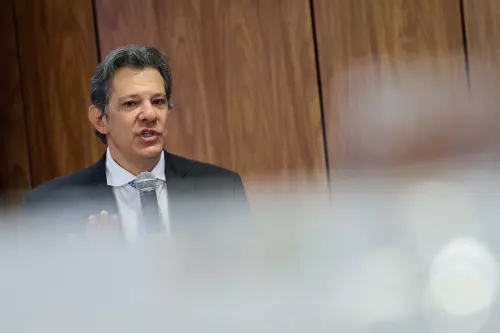Brazil's Finance Minister Fernando Haddad stated that the government will maintain next year's primary surplus target, despite the challenges it presents, as it prepares to submit its 2026 fiscal goal proposal to Congress.
Achieving the primary surplus will not be easy, but Haddad affirmed the commitment to pursuing it, confirming that the target of 0.25% of gross domestic product (GDP) has the approval of leftist President Luiz Inacio Lula da Silva.
By law, the government must submit its fiscal target proposal for the following year to Congress by April 15. Last year, this process led to significant market turmoil after the government revised its 2025 fiscal target, choosing a more gradual adjustment than initially set in a new fiscal framework approved in 2023, which links primary balance targets to a cap on spending growth.
Haddad expressed optimism about potential positive developments regarding inflation this year, noting that Brazil's currency is stabilizing at levels more in line with its peers, although he acknowledged it is still somewhat undervalued. The Brazilian real has appreciated over 7% against the U.S. dollar year-to-date, partially recovering from a more than 20% decline last year.
He mentioned that favorable factors such as a bumper crop, currency dynamics, and geopolitical considerations could benefit Brazil this year. However, he highlighted that the U.S. Federal Reserve's delay in cutting interest rates poses a more challenging environment for Latin America's largest economy in 2024.
